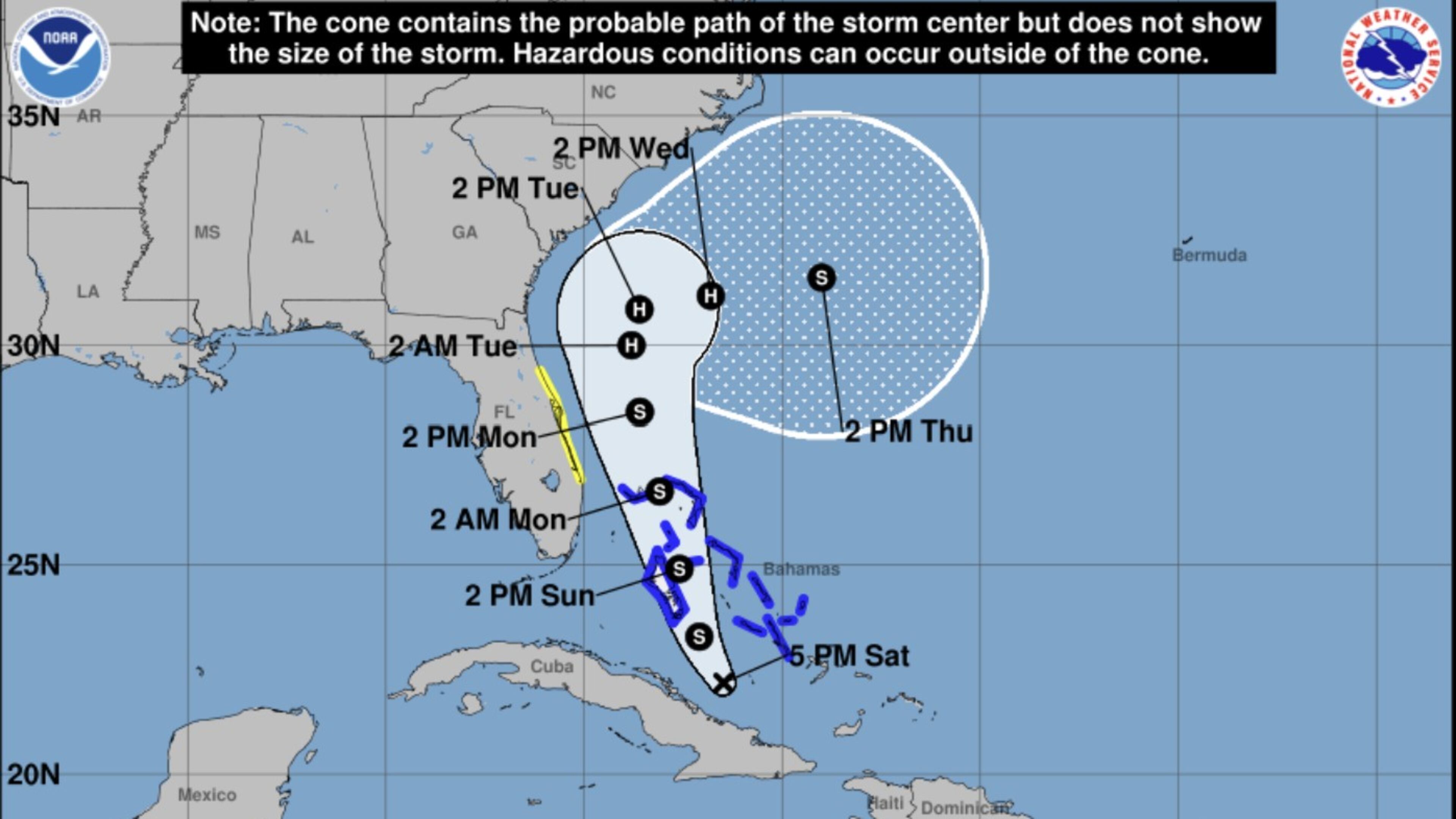Atlantic system expected to become tropical storm, could impact Georgia

A system in the Atlantic Ocean will continue intensifying and impact parts of South Georgia, though a direct hit to the coast is unlikely.
Saturday afternoon, the storm remained over parts of the Bahamas and Cuba.
The National Hurricane Center said the system became a tropical depression shortly before 11 a.m. It’s expected to strengthen into a tropical storm late Saturday or early Sunday.
It’s forecast to bring strong winds and heavy rain over the weekend to Florida’s east coast and areas southeast of the peninsula.
A tropical depression is a low-pressure area with winds up to 39 mph. The next step is a tropical storm with wind gusts between 39 and 73 mph.
When the system becomes a tropical storm, it will be named Imelda. From there, the NHC said it has the potential to be at or near hurricane intensity.
While the Hurricane Center projects heavy rainfall early next week in parts of coastal Georgia, as well as the Carolinas and mid-Atlantic states, it’s still early for experts to know the exact path the storm will take.
Regardless, Georgia leaders are looking ahead.
While in Savannah on Friday for the Georgia Tourism Conference, Gov. Brian Kemp told reporters before his official speech that authorities are watching the system.
“I would just caution everybody to be ready. We’re activating all the state resources that we need, preplanning to where we would be opening the state operations center,” Kemp said. “We’ll continue to monitor it and see where the path is going to go … I’d tell people to be weather-ready.”
The Georgia Emergency Management and Homeland Security Agency said they have resources — such as water, tarps, sandbags and ready-to-eat meals — at warehouses across the state for quick deployment.
The system is expected to move north from Cuba and the Bahamas through the weekend and remain to the east of Florida, according to the NHC.
It’s expected to slow as it nears coastal Georgia and South Carolina on Tuesday and Wednesday. The Hurricane Center projects it will then turn east, avoiding a direct hit in both states.
“We are expecting the system to become a hurricane by early next week and approach the coast of South Carolina as a hurricane or strong tropical storm,” National Hurricane Center Director Michael Brennan, Ph.D., said Friday afternoon.
Residents in those areas should prepare for storm surge and strong winds, the Hurricane Center said.
GEMA/HS predicts 2-3 inches of rain in eastern and coastal Georgia counties between Monday and Wednesday.
“We encourage residents to stay informed and have a plan in place to protect themselves and their families,” the agency said.
On Friday, South Carolina Gov. Henry McMaster declared a state of emergency.
“While the storm’s arrival, speed, and intensity remain hard to predict, we do know that it will bring significant wind, heavy rainfall, and flooding across the ENTIRE state of South Carolina,” McMaster said.
Last September, Hurricane Helene made landfall in Florida as a Category 4 hurricane and moved into South Georgia.
The storm claimed an estimated 250 lives, according to the National Oceanic and Atmospheric Administration, and caused nearly $79 billion in damage, making it the U.S.’s seventh-costliest tropical storm.
More Stories
Keep Reading



